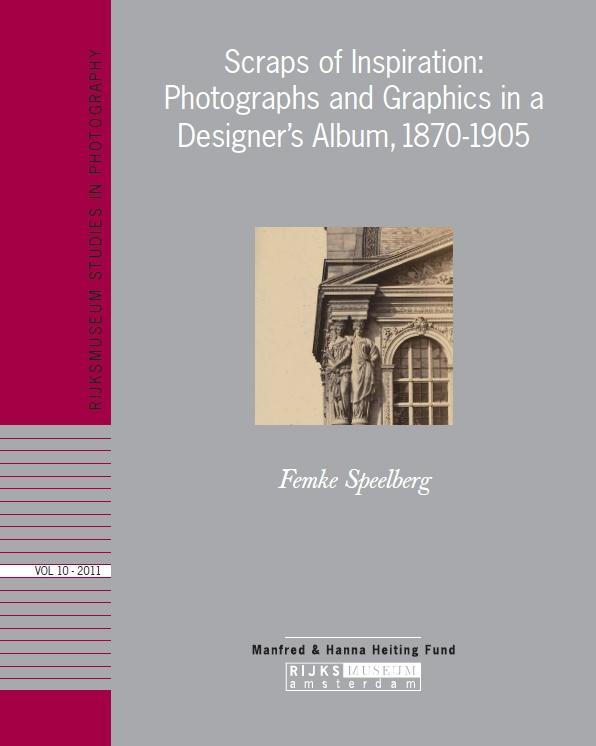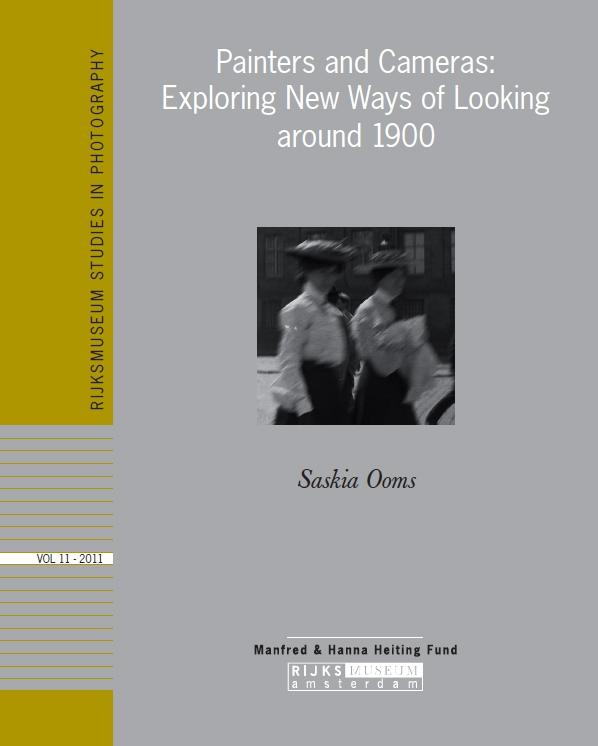New studies on special scrapbook and painters who branched into photography Two of the latest subjects to feature in the Rijksmuseum series Studies in Photography are a unique scrapbook and painter-photographers. The first work leads you on a trail of discovery through an inspiring scrapbook housed in the Rijksmuseum Print Room, while the second conducts a study of the Dutch painters Breitner and Witsen and their international contemporaries who branched into the world of photography towards the end of the 19th century. The series Studies in Photography is published with the support of the Manfred & Hanna Heiting Fund, which is managed by the Rijksmuseum.
Curator of photography, Mattie Boom: ‘The Manfred and Hanna Heiting Fund offers young researchers a fantastic opportunity to delve into our rich and extensive collection of photographs. This collection is a real laboratory for anyone with a budding curiosity for the vibrant history of photography. The Rijksmuseum Studies in Photography collection is a great source of wonder and envy among our international colleagues.’
Rijksmuseum Studies in Photopgraphy, Vol 10 Scraps of Inspiration: Photographs and Graphics in a Designer’s Album, 1870-1905 by Femke Speelberg
In volume 10 of Studies in Photography, the author Femke Speelberg unravels the riddle of an exceptional scrapbook replete with a curious combination of prints, tracings, magazine cuttings of wood engravings, die-cuts and photo cut-outs. Speelberg’s analysis culminates in Rotterdam with the furniture designer Heinrich Cord Schmidt. ‘The World of Interiors’ — the 19th century edition. This unique album in the Rijksmuseum Print Room collection finds it origins in the disciplines of interior architecture and design.
What moves today’s designers of tables, chairs, cabinets, carpentry works and banisters to get behind the drawing table? Where do they draw their inspiration from? They consult books and illustrated journals and study a great many photos. A process no different to that conducted by their predecessors in the 19th century. However, what made these designers so unique was that they collected all these scraps of inspiration in an album. Even more extraordinary is the fact that such an album was preserved, thereby providing us with a rare opportunity to trace the thought process of the designer.
Rijksmuseum Studies in Photography, Vol 11 Painters and Cameras: Exploring New Ways of Looking around 1900 by Saskia Ooms
In the 1880s, the world of photography was revolutionized. Companies such as Eastman introduced easy-to-use cameras that were so small you no longer needed to mount them on a tripod. Moreover, because negative plates no longer had to be prepared by hand but could be bought in ready-made formats in shops, the tools of photography became accessible to anyone who could afford to buy a camera. You no longer had to be a budding chemist to indulge in a spot photography.
However, these new hand-held cameras were not exclusively the preserve of the middle-classes wishing to record memories; various artists also purchased cameras. Among them were the great names Pierre Bonnard, Maurice Denis and Edouard Vuillard — all members of the French Nabis group. The new painter-photographer movement soon spread beyond the borders of France to the Netherlands where in particular George Hendrik Breitner and Willem Witsen spent many years taking photographs.
These painter-photographers sometimes used photographs as a preparatory study or reference for their paintings, in the same way they had previously used sketches. But they also used the camera to record intimate family scenes. While these artists chose the same subjects as the run-of-the-mill amateur with no artistic training, their images stood out for their compositions, betraying their painterly background. Nowadays, these photographic oeuvres are regarded as some of the most interesting works to have been produced in the period around the turn of the century. This study compares the French and Dutch painter-photographers for the first time and places their work in a wider context.
 Marie Jordan before Breitner's copy of Rembrandt's Anatomy Lesson, George Hendrik Breitner, c. 1890 - Mit freundlicher Genehmigung von: rijksmuseum
Marie Jordan before Breitner's copy of Rembrandt's Anatomy Lesson, George Hendrik Breitner, c. 1890 - Mit freundlicher Genehmigung von: rijksmuseum
 Rijksmuseum Studies in Photopgraphy, Vol 10 Scraps of Inspiration: Photographs and Graphics in a Designer’s Album, 1870-1905 by Femke Speelberg - Mit freundlicher Genehmigung von: rijksmuseum /
Rijksmuseum Studies in Photopgraphy, Vol 10 Scraps of Inspiration: Photographs and Graphics in a Designer’s Album, 1870-1905 by Femke Speelberg - Mit freundlicher Genehmigung von: rijksmuseum /  Rijksmuseum Studies in Photography, Vol 11 Painters and Cameras: Exploring New Ways of Looking around 1900 by Saskia Ooms - Mit freundlicher Genehmigung von: rijksmuseum /
Rijksmuseum Studies in Photography, Vol 11 Painters and Cameras: Exploring New Ways of Looking around 1900 by Saskia Ooms - Mit freundlicher Genehmigung von: rijksmuseum /